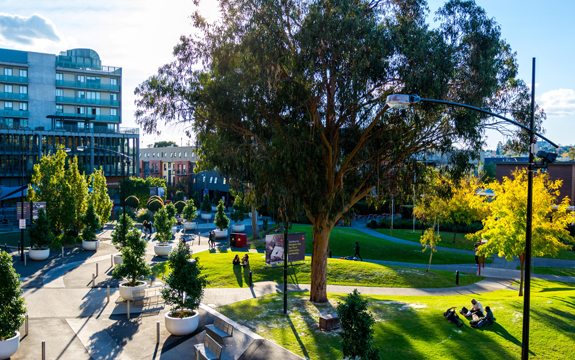Game-based learning to reduce carbon footprint

In Summary
Game-based mobile learning may lead towards reducing the carbon footprint in communities by helping building tradespeople, professionals and individuals make low carbon living choices.
Swinburne University of Technology will lead a three and a half year project funded by the Cooperative Research Centre for Low Carbon Living (CRC) that aims to educate and motivate people to work collaboratively to adopt low carbon products and services.
Project leader and Swinburne Professor Leon Sterling said even highly experienced and skilled professionals and tradespeople, often do not promote low carbon living options to consumers unless they have knowledge of proven solutions and the confidence to implement them.
“Professionals and tradespeople may unknowingly be encouraging high carbon options, instead of the low carbon options available. Consumers are also frustrated when requesting low energy options because instead of being offered solutions they are convinced that the available options are not viable.
“This has highlighted an urgent need for a collaborative approach to raising knowledge in relation to sustainable solutions. Part of that approach will be to inform and increase the capability of consumers to ultimately drive demand for low carbon living products and services,” said Professor Sterling.
The other key area of research will be focused on engaging trades and professionals in an integrated work process to increase the uptake of low carbon solutions during the planning and design stages to optimise the outcomes.
Although Swinburne are involved in other CRC projects, this particular research is part of the CRC’s Engaged Communities program focused on understanding and influencing consumer behaviour and decision-making in order to reduce the carbon intensity of modern lifestyles.
“This is a step towards enabling a globally competitive low carbon built environment sector through working with our partners across universities, industry and government,” Deo Prasad, CRC for Low Carbon Living CEO said.
“With 84 per cent of Australians using smart phones, this project will drive linkages between consumers, tradespeople and professionals for low carbon practices, products and services.”
There is a growing body of evidence supporting the effectiveness of mobile learning as a mode of learning. Studies show that learners value the ‘anytime, anywhere’ characteristics of mobile learning, game-based lessons and the ability to communicate easily with others.
Professor Sterling said this project will work closely with the CRC’s industry partners to deliver innovative mobile learning applications that engage professionals, tradespeople and consumers in relation to low carbon living outcomes in built environment projects.
“As a result, participants will become confident, well-informed experts who will drive demand for low carbon living products and services across the sector,” Professor Sterling said.
To keep updated on this research project follow @mobileLCL on Twitter.

